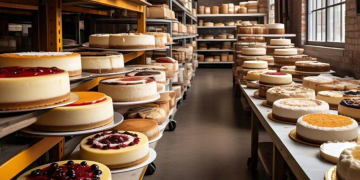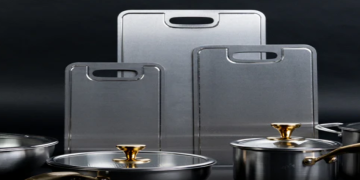Tiramisu: Tiramisu, meaning “pick me up” or “cheer me up” in Italian, is a beloved dessert that originated in the Veneto region of Italy. Its exact origins are debated, but it’s commonly believed to have been created in the 1960s or 1970s. Tiramisu is typically made by layering coffee-soaked ladyfingers (savoiardi biscuits) with a creamy mixture of mascarpone cheese, eggs, and sugar. The dessert is then dusted with cocoa powder for added flavor. Tiramisu is loved for its creamy texture, delicate balance of coffee and sweetness, and elegant presentation.
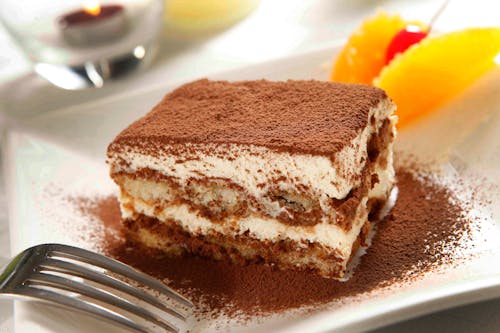
Cannoli: Cannoli are Sicilian pastries consisting of crispy, fried pastry shells filled with a sweet and creamy ricotta cheese mixture. The shells are often made with flour, sugar, and butter, rolled into thin sheets and wrapped around metal cannoli tubes before frying. The filling typically includes ricotta cheese, sugar, and flavorings such as vanilla, citrus zest, or chocolate chips. Cannoli are sometimes garnished with chopped pistachios, candied fruit, or powdered sugar for added texture and flavor.
Gelato: Gelato is Italy’s version of ice cream, but it differs in several key ways. Gelato has a lower fat content and is churned at a slower speed than traditional ice cream, resulting in a denser, smoother texture. Gelato also tends to be served at a slightly warmer temperature than ice cream, enhancing its flavor and creaminess. It comes in a wide variety of flavors, including classics like stracciatella (chocolate chip) and pistachio, as well as more inventive options like salted caramel or basil.
Panna Cotta: Panna Cotta is a creamy Italian dessert that translates to “cooked cream.” It originated in the Piedmont region of Italy and is made by simmering cream, sugar, and gelatin together until the mixture is thickened and set. The dessert is often flavored with vanilla, and it can be served with a variety of toppings, such as fruit coulis (a thick fruit sauce), caramel sauce, or fresh berries. Panna Cotta is prized for its silky-smooth texture and delicate flavor.

Zeppole: Zeppole are traditional Italian pastries that are popular during festivals and holidays, particularly Saint Joseph’s Day. They are made from a simple dough of flour, water, eggs, and sometimes butter, which is deep-fried until golden and crispy. Zeppole can be either filled or unfilled. Filled zeppole are typically injected with pastry cream, ricotta cheese, or custard, while unfilled zeppole are dusted with powdered sugar and served plain.
Torta della Nonna: Torta della Nonna, or “Grandmother’s Cake,” is a classic Italian dessert that consists of a buttery shortcrust pastry filled with a rich custard flavored with lemon zest and vanilla. The top of the tart is often adorned with a lattice pattern or sprinkled with pine nuts before baking. Once baked, the tart is dusted with powdered sugar for a touch of sweetness. Torta della Nonna is beloved for its rustic charm and comforting flavors.
Amaretti Cookies: Amaretti cookies are traditional Italian almond cookies that are crisp on the outside and chewy on the inside. They are made with almond flour, sugar, and egg whites, which are combined to form a sticky dough that is rolled into balls and coated in granulated sugar before baking. Amaretti cookies are often flavored with bitter almond extract or amaretto liqueur, giving them a distinct almond flavor. They are perfect for dipping in coffee or enjoying on their own as a sweet treat.
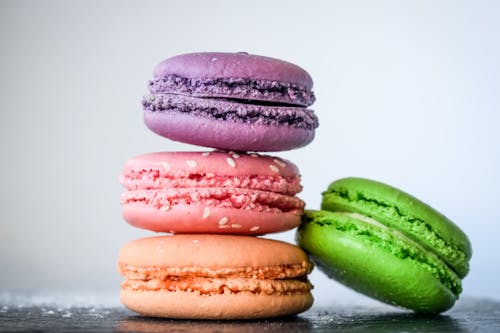
Zabaione: Zabaione, also known as Sabayon, is a rich and creamy Italian custard made with egg yolks, sugar, and Marsala wine. The ingredients are whisked together over gentle heat until the mixture is thick and frothy, resulting in a light and airy dessert with a delicate flavor. Zabaione can be served warm or chilled, either on its own or as a topping for fresh fruit, sponge cake, or gelato.
Sfogliatelle: Sfogliatelle are Italian pastries that originated in Naples and are known for their flaky, shell-shaped crust and rich ricotta cheese filling. The dough is made by layering thin sheets of dough with butter or lard and then rolling and folding them repeatedly to create multiple layers. The pastry is then filled with a mixture of ricotta cheese, sugar, citrus zest, and sometimes semolina flour before being baked until golden and crisp. Sfogliatelle are prized for their delicate texture and fragrant filling.
Baba au Rhum: Baba au Rhum, also known simply as baba, is a small yeast cake that is soaked in a sweet syrup flavored with rum. The cakes are typically made from a rich dough of flour, sugar, eggs, and butter, which is baked until golden and then soaked in the rum syrup while still warm. The syrup imbues the cakes with a rich, boozy flavor and keeps them moist and tender. Baba au Rhum are often served with whipped cream or a sprinkle of powdered sugar for added indulgence.
Here’s a list of the top 10 Italian desserts, arranged from easier to more challenging in terms of preparation:

Amaretti Cookies:
These classic almond cookies are relatively easy to make, requiring only a few simple ingredients like almond flour, egg whites, and sugar.
The dough is formed into small balls, rolled in sugar, and baked until golden brown.
Variations include adding bitter almond extract or amaretto liqueur for extra flavor.
Zeppole:
Zeppole are deep-fried pastries made from a simple dough of flour, water, butter, and eggs, which is then piped into hot oil.
Once fried, they are dusted with powdered sugar and served warm.
While they require some skill in handling hot oil, the basic preparation is straightforward.

Panna Cotta:
Panna Cotta is a creamy custard dessert made by simmering cream, sugar, and gelatin together until the mixture thickens.
After chilling in the refrigerator, it’s typically served in individual molds or ramekins.
While the process is relatively simple, achieving the perfect consistency can require some practice.
Torta della Nonna:
Torta della Nonna involves making a shortcrust pastry dough, filling it with a creamy custard flavored with lemon zest and vanilla, and topping it with pine nuts.
The assembly requires some skill in rolling out the pastry dough and shaping it into a tart pan.
However, the overall process is manageable for those with basic baking experience.
Amaretti Cookies:
These classic almond cookies are relatively easy to make, requiring only a few simple ingredients like almond flour, egg whites, and sugar.
The dough is formed into small balls, rolled in sugar, and baked until golden brown.
Variations include adding bitter almond extract or amaretto liqueur for extra flavor.
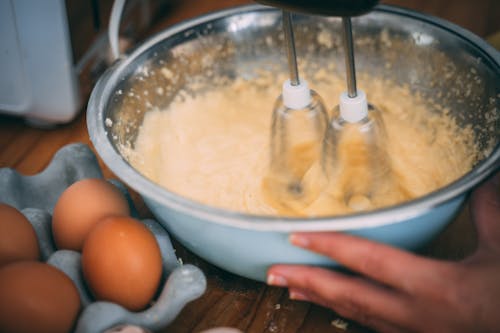
Cannoli:
Cannoli consist of fried pastry shells filled with a sweetened ricotta cheese mixture.
The pastry dough can be made from scratch or purchased pre-made, and the filling is a simple blend of ricotta cheese, sugar, and flavorings like vanilla or citrus zest.
While frying the shells requires some precision, the overall process is achievable with practice.
Zabaione:
Zabaione is a delicate custard made by whisking egg yolks, sugar, and Marsala wine over gentle heat until thickened.
The key challenge lies in maintaining a gentle heat to prevent the eggs from scrambling while achieving the desired consistency.
With careful attention and constant stirring, Zabaione can be mastered by home cooks.
Sfogliatelle:
Sfogliatelle are flaky pastry shells filled with a ricotta cheese mixture flavored with citrus zest and cinnamon.
The preparation involves making a laminated dough with layers of butter and dough, which is then rolled, filled, and shaped into shell-like forms.
Achieving the signature flakiness of Sfogliatelle requires precision in rolling and folding the dough, making it a more advanced dessert to master.
Tiramisu:
Tiramisu involves assembling layers of ladyfingers soaked in coffee, alternating with a creamy mixture of mascarpone cheese, eggs, and sugar.
Achieving the perfect balance of flavors and textures requires careful soaking of the ladyfingers and proper layering of the components.
While the individual steps are not overly complicated, attention to detail is crucial for a flawless Tiramisu.

Baba au Rhum:
Baba au Rhum is a yeasted cake soaked in a syrup flavored with rum.
Making the cake itself involves working with yeast dough, which requires precise measurements and techniques for proper rising and baking.
The soaking process requires skill in ensuring that the cake absorbs the syrup evenly without becoming soggy.
Overall, Baba au Rhum is considered one of the most challenging Italian desserts to master due to its multi-step process and technical intricacies.
Whether you’re a novice baker or a seasoned pastry chef, there’s an Italian dessert on this list to suit every skill level and palate. With patience, practice, and a love for sweet indulgence, you can embark on a delicious journey through the flavors of Italy right in your own kitchen. Buon Appetito!







